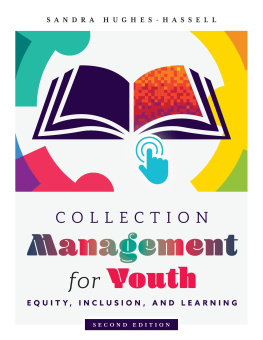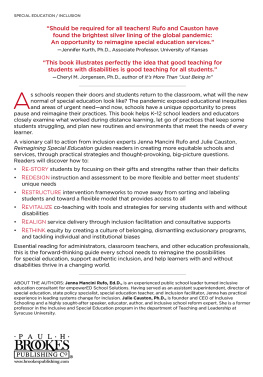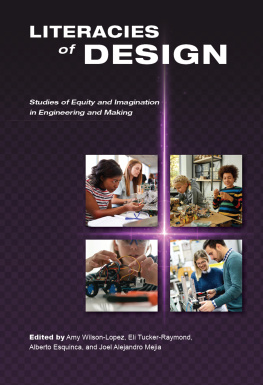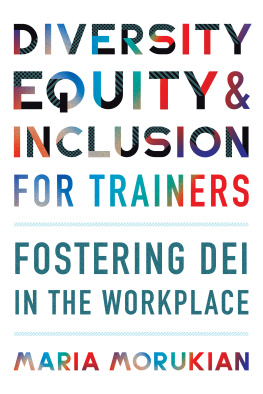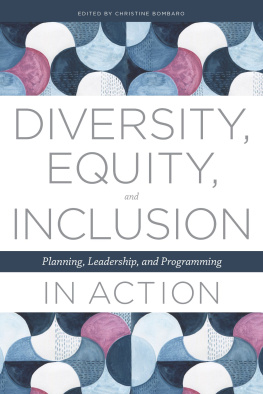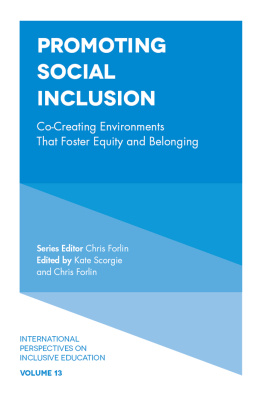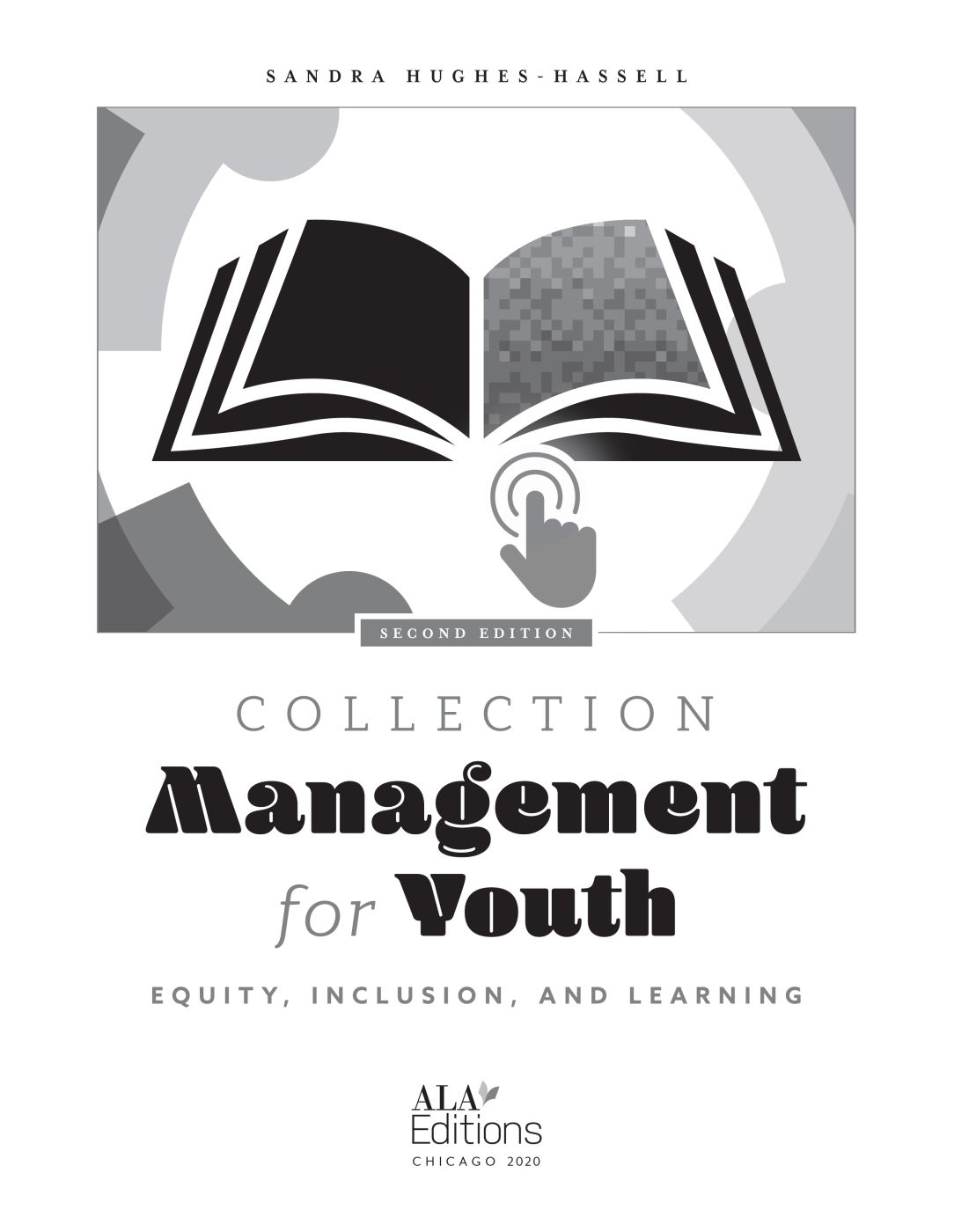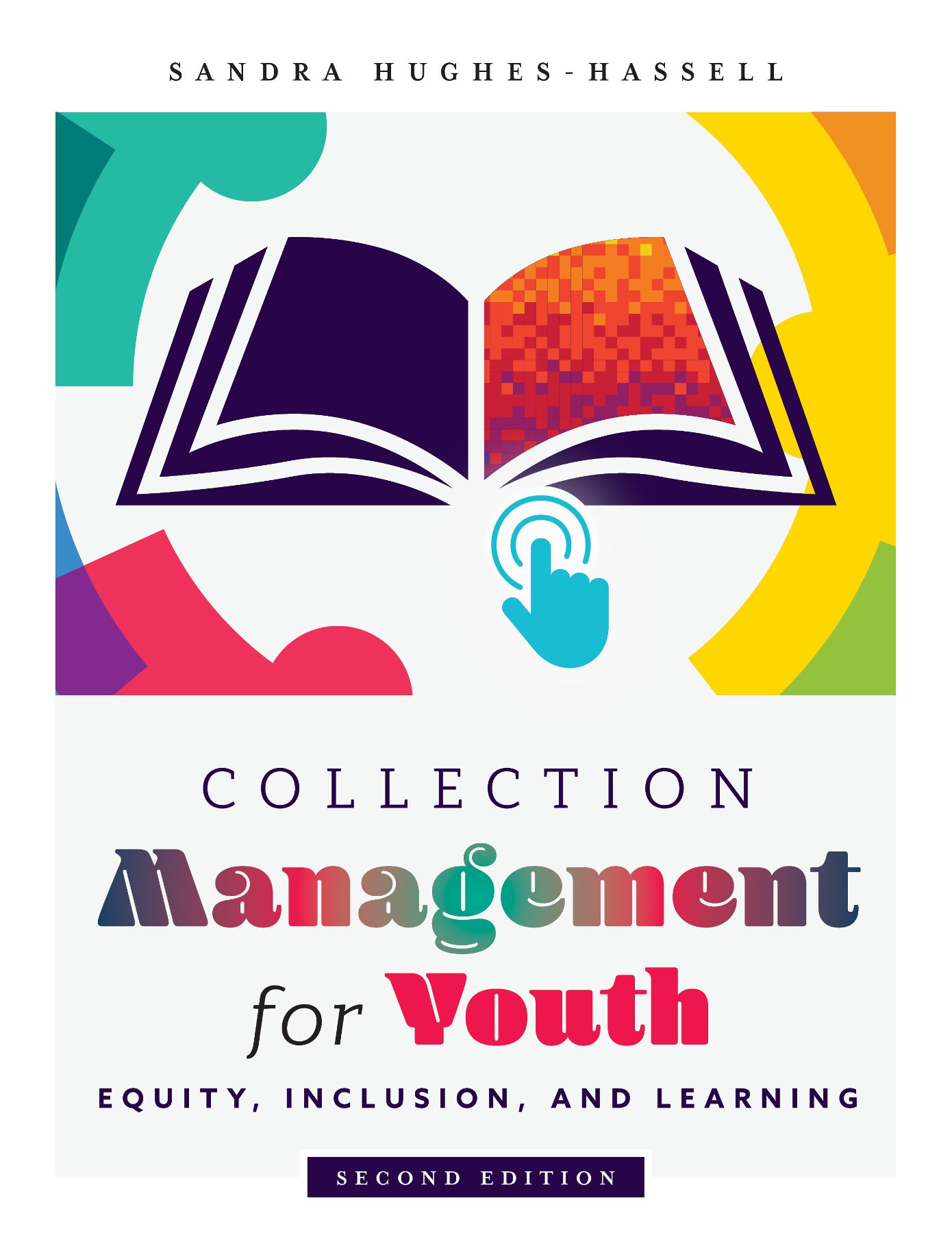
ALA Editions purchases fund advocacy, awareness, and accreditation programs for library professionals worldwide.
SANDRA HUGHES-HASSELL, PhD, is a professor in the School of Information and Library Science at the University of North Carolina at Chapel Hill. In her current research, she focuses on social justice issues in youth library services. She is a past president of the Young Adult Library Services Association. She holds a masters degree in education from James Madison University and a PhD in library and information science from the University of North Carolina at Chapel Hill.
2020 by Sandra Hughes-Hassell
Extensive effort has gone into ensuring the reliability of the information in this book; however, the publisher makes no warranty, express or implied, with respect to the material contained herein.
ISBNs
978-0-8389-4750-0 (paper)
978-0-8389-4752-4 (PDF)
978-0-8389-4753-1 (ePub)
978-0-8389-4754-8 (Kindle)
Library of Congress Cataloging-in-Publication Data
Names: Hughes-Hassell, Sandra, author.
Title: Collection management for youth : equity, inclusion, and learning / Sandra Hughes-Hassell.
Description: 2nd edition. | Chicago : ALA Editions, 2020. | Previously published under title: Collection management for youth: responding to the needs of learners. | Includes bibliographical references and index. | Summary: Hughes-Hassell provides models and tools for collection managers that will enable library staff who serve youth to put in place, demonstrate, and create learner-centered collections that are inclusive and provide equitable access to all youthProvided by publisher.
Identifiers: LCCN 2020000768 (print) | LCCN 2020000769 (ebook) | ISBN 9780838947500 (paper; alk. paper) | ISBN 9780838947524 (pdf) | ISBN 9780838947531 (epub) | ISBN 9780838947548 (Kindle edition)
Subjects: LCSH: School librariesCollection development. | Instructional materials centersCollection development. | School librarian participation in curriculum planning. | Educational change. | Constructivism (Education)
Classification: LCC Z675.S3 H73 2020 (print) | LCC Z675.S3 (ebook) | DDC 025.2/1878dc23
LC record available at https://lccn.loc.gov/2020000768
LC ebook record available at https://lccn.loc.gov/2020000769
Cover design by Karen Sheets de Gracia.
To the memory of Dr. Jacqueline C. Mancall whose tireless work and dedication throughout her twenty-eight-year career as a professor at Drexel University led to landmark changes that positively impacted library and information science professionals across the globe. She was one of the fields foremost researchers and educators, working for lasting systemic changes in school librarianship. Through her visionary leadership, Jackie helped transform library and information science practices and policies with a focus on creating equitable library programs and services for youth. She was recognized for her leadership in 1999, when she received the Distinguished Service Award from the American Association of School Librarians.
Jackies legacy includes a cadre of school librarians and researchers who she mentored to be brave and fierce, to embrace change and innovation, and to always put children and teens first. I am honored to be one of them.
~ SANDRA HUGHES-HASSELL ~
CONTENTS
Tools in .
I would like to thank the many individuals whose work, past and present, has stimulated my thinking and deepened my understanding of equity, diversity, and inclusion in libraries. I want to acknowledge a few specific people, including:
- Dr. Pauletta Brown Bracy
- Dr. Claudia Gollop
- Dr. Debbie Reese
- Dr. Nicole Cooke
- Dr. Amelia Gibson
- Dr. Kafi Kumasi
- Dr. Casey Rawson
- Julie Stivers
- Katherine Cole
- Teresa Bunner
I would also like to thank the following advisory board members for providing critical and constructive feedback on the many drafts of the manuscript:
- Linda Braun
- Dr. Casey Rawson
- Julie Stivers
And, I thank the editorial staff at the American Library Association, especially Rachel Chance, for her patience and helpfulness through the long process leading to the final manuscript.
Finally, I thank Lew and Will for their never-ending support and encouragement.
The Library as a Place for Learning
T he concept of the library as a place for learning is not new; however, the implementation of the concept continues to change. In the contemporary field of library and information services, there is a call for an expanded vision of how library materials can be selected to support formal and informal learning environments that facilitate the development of multiple literacies and support the interests and needs of an increasingly diverse group of young learners. This vision is strongly articulated in the American Association of School Librarians (AASL) National School Library Standards for Learners, School Librarians, and School Libraries (2018), the Young Adult Library Services Associations (YALSA) Teen Services Competencies for Library Staff (2017), and the Association for Library Services to Childrens (ALSC) Competencies for Librarians Serving Children in Public Libraries (2015). These documents reinforce an instructional role for both school and public library staff. They also set the stage for a focus on advancing equity and inclusion.
Since their inception, libraries have been discussed as democratizing institutions that provide all people with free access to resources and education that they could not otherwise afford. The reality, unfortunately, is that libraries often replicate and perpetuate many of societys inequities. Historically, libraries have been dominated by white, cisgender, heterosexual, and able-bodied experiences and values that are often reflected in library practices, norms, and collectionsall issues that are still prevalent today. As Amy Sonnie (2018), author of Advancing Racial Equity in Public Libraries, pointed out, too often diversity initiatives have focused on multiculturalism and creating more tolerant library staff rather than creating more equitable institutions that improve the economic, political, and social conditions of people of color, Indigenous communities, people who identify as Lesbian, Gay, Bisexual, Transgender, or Queer (LGBTQ), disabled people, or immigrants. I agree with Sonnies statement: We must act with urgency. As institutions committed to values of democracy and intellectual freedom, libraries have an obligation to move beyond diversity initiatives to grapple more actively with the power and responsibility of our positions (2018, 11). To move from diversity to equity and inclusion, library staff need to change the way they think, operate, and collaborate in all areas, including collection development and management.
Developing and managing a library collection that facilitates learning, supports the development of multiple literacies, and provides equitable access to all youth is a complex goalone that will require numerous questions to be addressed, such as:
- Who is the learner?
- What are the learner-centered, equity-focused needs of young people in the community?
- What steps must the collection manager take to understand the broader social and systemic inequities that affect the learner?
Next page
